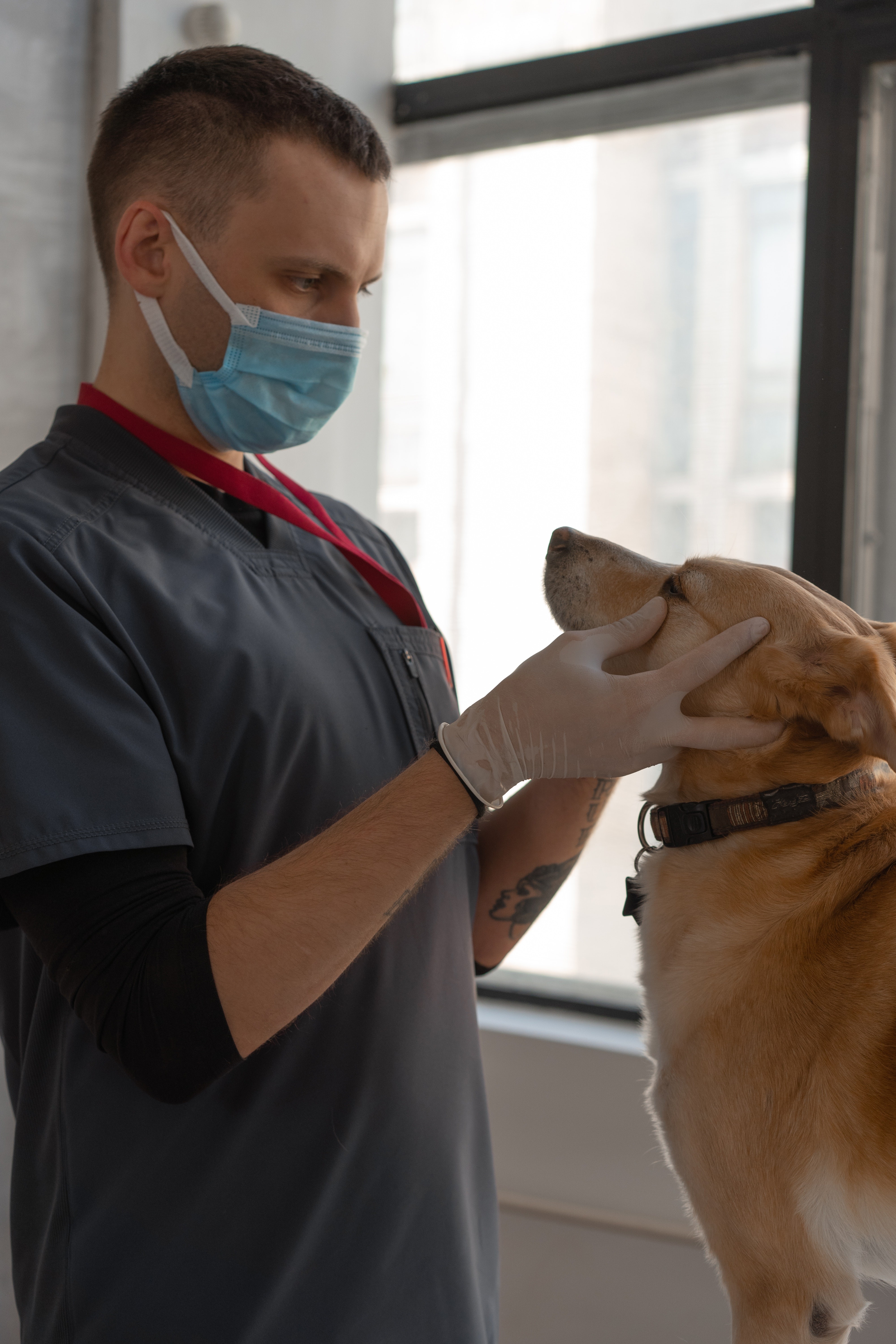Ensuring your beloved pet receives the best veterinary care is paramount for any pet owner. Sometimes, circumstances necessitate a change in veterinary care – perhaps you’re moving, or maybe you’re seeking a practice that better aligns with your needs. Switching vets is a common part of pet ownership, but it can bring up questions, especially concerning your pet’s medical history. A crucial aspect of this transition is access to your pet’s records. This leads to a vital question for every pet owner: can a vet refuse to give you your pet’s records? Understanding your rights and the standard procedures for transferring veterinary information is essential for seamless pet care.
Your Right to Your Pet’s Medical History
Generally, the answer to “can a vet refuse to give you your pet’s records?” is no. As a pet owner, you have the right to access your pet’s medical records. These records are essential for ensuring continuity of care when you switch to a new veterinarian. They contain a comprehensive history of your pet’s health, including past diagnoses, treatments, vaccinations, allergies, and medications. This information is crucial for a new vet to provide informed and effective care without repeating tests or missing vital details.
Think of your pet’s medical records as you would your own. You have a right to your personal health information, and similarly, you have a right to your pet’s health information. Veterinary practices are ethically and often legally obligated to provide these records to you or to a new vet upon your request.
When Can a Vet Refuse to Release Records?
While your right to your pet’s records is generally protected, there are specific, albeit rare, circumstances where a veterinarian might be hesitant or even refuse to release them directly to you. It’s important to understand these exceptions to fully grasp the nuances of accessing your pet’s information.
One primary reason a vet might pause before releasing records is suspicion of animal neglect or abuse. Veterinarians are mandated reporters in many jurisdictions. If a vet has reasonable suspicion that a pet is being neglected or abused, they may temporarily withhold records while they investigate or report their concerns to animal welfare authorities. This is not about refusing you access indefinitely but rather a temporary measure to protect the animal’s well-being. In such cases, their priority shifts to the pet’s safety, and releasing records directly to an owner under suspicion could potentially hinder an investigation or put the animal at further risk.
It’s also important to note the distinction between refusing to release records to you versus refusing to release them to a new veterinarian. Vets are generally very cooperative in transferring records directly to another veterinary practice upon your authorization. This is a routine professional courtesy and a standard practice to ensure seamless transitions in pet care.
How to Obtain Your Pet’s Records
The process for obtaining your pet’s records is usually straightforward. Here’s a step-by-step approach to ensure you get the necessary documentation:
-
Request the Records from Your Current Vet: The first step is to directly contact your current veterinary clinic. A simple phone call or email to their office is usually sufficient to initiate the record transfer process. Clearly state that you need your pet’s medical records.
-
Specify How You Need the Records: You can request the records in several formats:
- Direct Transfer to New Vet: This is the most common and often preferred method. Provide your new vet’s clinic name, address, phone number, and fax number (if applicable) to your current vet. They can then directly send the records to the new practice.
- Digital Copy for Yourself: You can request a digital copy of the records, usually in PDF format, sent via email or provided on a USB drive. This is useful for your personal keeping and can be easily forwarded to a new vet if needed.
- Printed Copy: While less common in today’s digital age, you can still request printed copies of your pet’s records. Be aware that there might be a nominal fee for printing and handling.
-
Provide Authorization: Veterinary clinics will typically require your authorization to release the records, especially to a third party (like a new vet). This might involve signing a release form, which can often be done electronically for convenience.
-
Follow Up: After making your request, follow up with your vet clinic within a few days to ensure they are processing it. Most clinics are prompt, but a gentle follow-up can prevent any delays, especially if you have an upcoming appointment with a new vet.
-
Understand Potential Fees: While vets cannot refuse to provide records in most cases, they may charge a reasonable fee for the administrative costs associated with copying and sending records, especially for printed copies. Inquire about any potential fees when you make your request.
Why Are Pet Records So Important?
Having access to your pet’s veterinary records is not just a matter of right; it’s crucial for responsible pet ownership and ensuring the best possible healthcare for your animal companion. Here’s why these records are so vital:
-
Continuity of Care: When you switch vets, especially if your pet has a chronic condition or ongoing health issues, having prior records ensures a smooth transition. The new vet can quickly understand your pet’s medical history, previous treatments, and responses to medications.
-
Accurate Diagnoses and Treatment: Past medical history is invaluable for accurate diagnoses. Symptoms can sometimes be misleading, but knowing what conditions your pet has had in the past, along with test results and treatment history, helps a new vet make informed decisions. For example, previous allergy tests or blood work can be crucial in diagnosing current ailments.
-
Avoiding Redundant Testing: Without past records, a new vet might need to repeat diagnostic tests, such as blood work or X-rays, to establish a baseline and understand your pet’s current health status. Having access to prior records can save you money and spare your pet unnecessary procedures.
-
Vaccination History: Accurate vaccination records are essential for ensuring your pet is properly protected against preventable diseases. Knowing the dates and types of previous vaccinations prevents over-vaccination and ensures timely boosters are administered.
-
Legal and Travel Requirements: In certain situations, such as boarding, grooming, or traveling across state or country borders, proof of vaccination and health records may be required. Having readily available records simplifies these processes.
Choosing the Right New Vet
While securing your pet’s records is crucial, so is selecting the right new veterinarian. Finding a vet that is a good fit for both you and your pet involves several considerations:
-
Recommendations and Reviews: Ask for recommendations from fellow pet owners in your area, friends, or local online pet communities. Online reviews can also provide insights into other clients’ experiences with a particular veterinary practice.
-
Specialization and Services: Consider if your pet has specific needs. For example, if you have a cat, a feline-only practice might be a good choice. If your pet has a chronic condition, look for a vet with expertise in that area. Ensure the clinic offers the range of services you anticipate needing, from routine check-ups to emergency care.
-
Location and Accessibility: Choose a clinic that is conveniently located for you, especially for routine visits and potential emergencies. Consider the clinic’s hours, appointment availability, and emergency protocols.
-
Clinic Environment and Staff: Visit the clinic beforehand if possible. Observe the cleanliness, organization, and overall atmosphere. Pay attention to how the staff interacts with pets and owners. A friendly, compassionate, and professional staff can make a significant difference in your and your pet’s experience.
-
Communication and Approach: During your initial interaction, assess the vet’s communication style. Do they listen to your concerns? Do they explain things clearly and in a way you understand? A good vet will be open to discussing treatment options, costs, and will partner with you in making decisions about your pet’s care.
Making the Switch Smoothly
Switching vets doesn’t have to be stressful. By being proactive and informed, you can ensure a smooth transition for both you and your pet:
-
Inform Your Previous Vet: Once you’ve chosen a new vet, inform your previous clinic that you will be transferring your pet’s care. While you don’t need to provide lengthy explanations, letting them know is courteous and facilitates the record transfer process.
-
Schedule an Initial Appointment: Contact the new vet’s office to schedule an initial “meet and greet” appointment or a comprehensive health check for your pet. This allows your pet to become acquainted with the new vet and clinic in a non-urgent setting.
-
Share Pet’s History with New Vet: Whether the records are transferred digitally or you bring a copy, ensure your new vet has access to your pet’s complete medical history before or during the first appointment. Highlight any chronic conditions, allergies, or ongoing medications.
-
Observe and Evaluate: After the first few visits, evaluate how you and your pet feel about the new veterinary practice. Is the vet attentive, knowledgeable, and compassionate? Is your pet comfortable with the new vet and clinic environment? Building a strong, trusting relationship with your vet is crucial for long-term pet healthcare.
Conclusion
Understanding your rights regarding your pet’s medical records is a key aspect of responsible pet ownership. While vets generally cannot refuse to provide you with your pet’s records, knowing the process and your entitlements empowers you to advocate for your pet’s healthcare effectively. Switching vets, when necessary, can be a positive step towards ensuring your pet receives the best possible care. By focusing on clear communication, proactive record transfer, and careful selection of a new veterinary practice, you can make this transition a seamless and stress-free experience for both you and your furry companion.

